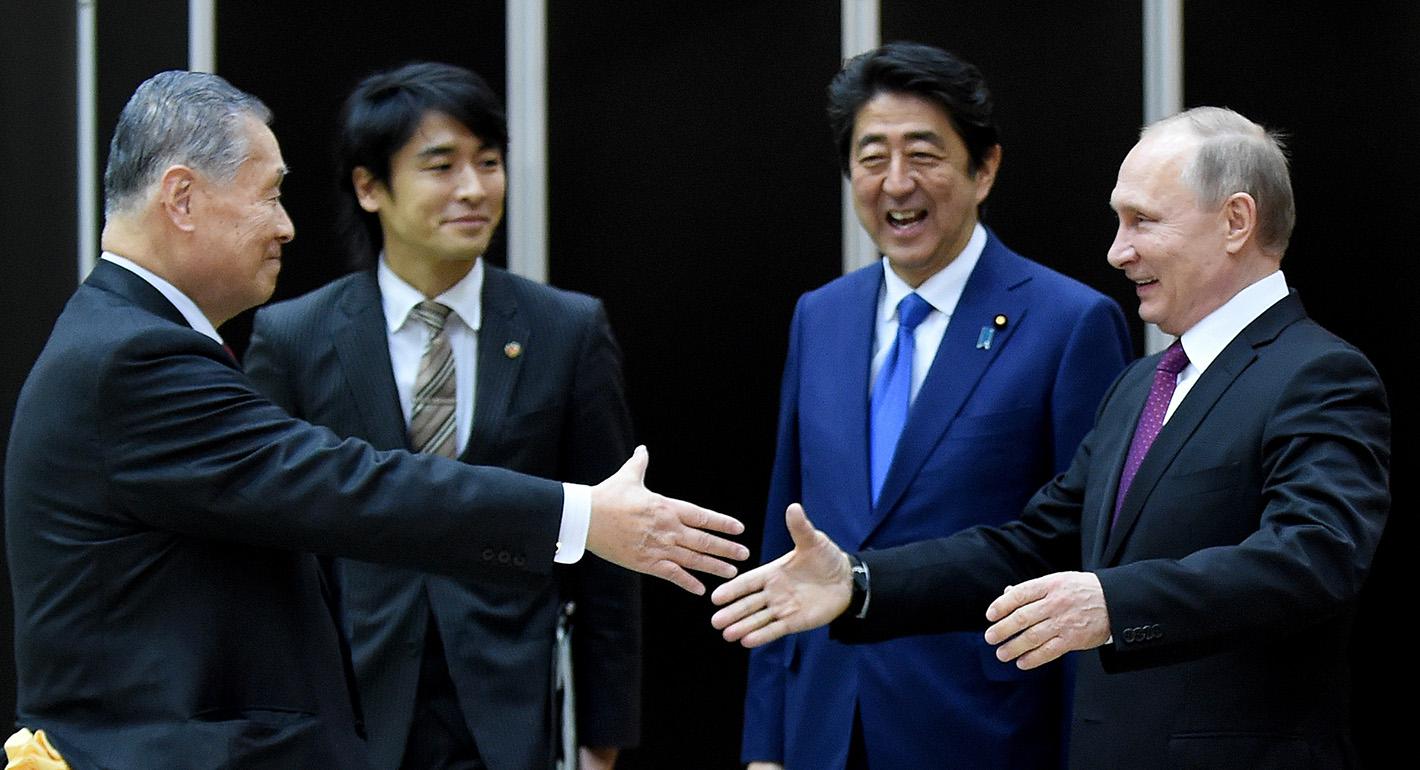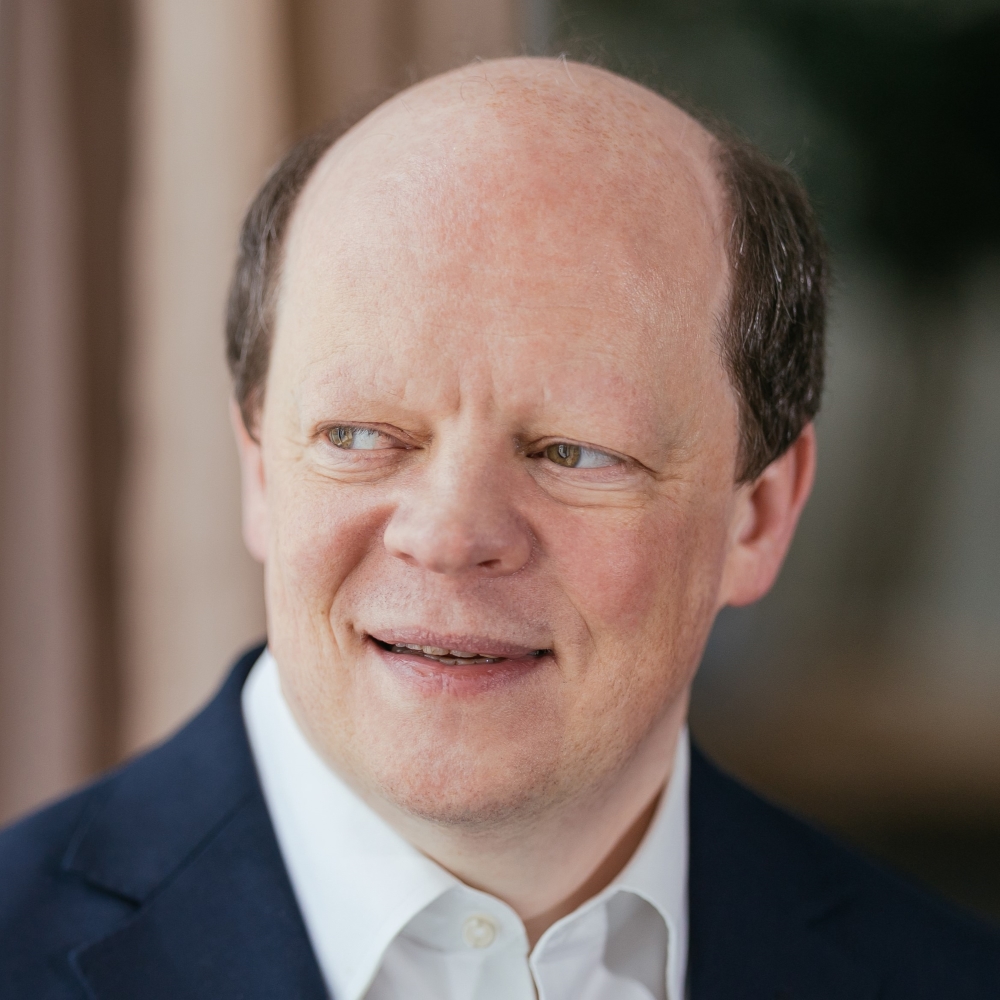Unexpectedly, Trump’s America appears to have replaced Putin’s Russia’s as the world’s biggest disruptor.
Alexander Baunov
{
"authors": [
"James D.J. Brown"
],
"type": "commentary",
"blog": "Carnegie Politika",
"centerAffiliationAll": "",
"centers": [
"Carnegie Endowment for International Peace",
"Carnegie Russia Eurasia Center"
],
"collections": [],
"englishNewsletterAll": "",
"nonEnglishNewsletterAll": "",
"primaryCenter": "Carnegie Russia Eurasia Center",
"programAffiliation": "",
"programs": [],
"projects": [],
"regions": [
"East Asia",
"Japan",
"Russia",
"Caucasus"
],
"topics": [
"Foreign Policy",
"Economy"
]
}
As elderly proponents of close ties with Moscow leave the stage, it’s unlikely there will be anyone to fill their shoes.
Despite the war in Ukraine, pro-Russian lobbies remain part of the political landscape in many Western countries, with politicians and businessmen arguing for closer ties with Moscow. Japan is no exception, and pro-Russia figures make headlines with claims about NATO’s provocative behavior and Ukraine’s misguided policy. However, those voices are growing quieter.
Pro-Russian policies were at their peak in Japan in the 2010s, during Shinzo Abe’s second premiership. Abe’s Russia policy had two drivers. The first was his family history. His father, Shintaro Abe, had served as foreign minister between 1982 and 1986, and considered the normalization of Japan’s relations with the Soviet Union to be his life’s work. As heir to the Abe family political dynasty, Shinzo Abe tried to continue that legacy.
The second mainstay was Abe’s conviction that a closer relationship with Moscow would help to distance Russia from China and thus weaken the Chinese regime, which he considered to be the main threat to Japan’s national security.
Throughout his years in power, Abe tried to build a special relationship with Putin. He called him “dear Vladimir” and a “partner” with whom he could always have a heart-to-heart conversation. He did not impose tough sanctions on Russia following Putin’s illegal annexation of Crimea in 2014.
In 2016, the Japanese leader unveiled a plan for intensified economic cooperation with Russia. The crowning moment came in 2019, when, with the active support of the Japanese government, the energy firms Mitsui and JOGMEC acquired a 10 percent stake in the Arctic LNG 2 project in northern Siberia.
When Abe stepped down as prime minister in 2020, he remained the most influential figure in the ruling Liberal Democratic Party. He might have carried on pulling strings in Japan’s government and arguing for engagement with Russia, but in July 2022 he was assassinated at a rally.
However, Abe was not Russia’s only Japanese friend. That list also includes two other former prime ministers: Yoshiro Mori (2000–2001) and Yukio Hatoyama (2009–2010).
As with Abe, Mori’s reverential attitude toward Russia can be traced to his father, who in his post as a city mayor established close ties with the town of Shelekhov in the Irkutsk region of Siberia. So deep was the older Mr. Mori’s devotion to Russia that he ordered some of his ashes to be buried there. In March 2001, Prime Minister Mori visited his father’s grave in Shelekhov. He was accompanied by Vladimir Putin, who had become Russia’s president a year earlier.
Mori continued to argue for rapprochement with Moscow after he left office in 2001. His rhetoric did not change even after Russia’s full-scale invasion of Ukraine in February 2022. In November of that year, he said Putin should not be held solely accountable for the war. “Many Ukrainians are suffering because of Mr. Zelensky,” he added.
Yukio Hatoyama’s policy was also shaped by his family’s legacy. His grandfather, Ichiro Hatoyama, served as prime minister between 1954 and 1956 and signed the joint declaration with the Soviet Union that restored diplomatic relations. Like Mori, Yukio Hatoyama continued to lobby for Russia’s interests after leaving office. In March 2015, he even visited Crimea and proclaimed that the illegal and internationally unrecognized referendum held there a year earlier had been completely legitimate.
Mori and Hatoyama have long since retired from the Japanese parliament. However, one loud pro-Russian voice remains within the legislature. This is Muneo Suzuki. In the 1990s and early 2000s, he was a prominent member of the Liberal Democratic Party, but he later shifted his allegiance to the Japan Innovation Party, an opposition party with a support base in Osaka.
As he likes to remind people, Suzuki was the first foreign politician to be received by Putin in April 2000, weeks after the latter became president. In 2015, Abe asked Suzuki to be his unofficial adviser on Russia policy. Suzuki argued that Putin could and should be trusted. He also advocated an idea considered radical by most Japanese: that Japan’s territorial dispute with Russia over the Southern Kuril Islands (Northern Territories in Japanese), which the Soviet Union seized in 1945, could be resolved by limiting its claims to the two smaller of the four islands. This entails giving up on more than 90 percent of the disputed landmass.
Since Russia’s full-scale invasion of Ukraine, Suzuki has remained vocal in his pro-Kremlin rhetoric. He insists the war is a consequence of U.S. attempts to maintain hegemony, and recently visited Russia where he met Russian deputy foreign minister Andrei Rudenko. While in Moscow, Suzuki commented positively on Russia’s military intervention, telling state media, “Russia will win, and Russia will not yield to Ukraine.”
While at first glance it may seem that Moscow has powerful supporters in Japan, in reality, these allies are few and their influence is minimal.
Most Japanese people view Mori and Hatoyama as two of their country’s worst prime ministers in modern history. Mori resigned with a 7 percent approval rating and is now principally known as a historical relic who only makes the headlines for his gaffes. These are usually disparaging comments about women.
Hatoyama, for his part, was prime minister for only nine months and left office with a 17 percent approval rating. His eccentric ideas and distinctive features have earned him the nickname “the alien.”
The Japanese public are likewise skeptical of Suzuki, who was sentenced to two years in prison for corruption in the early 2000s. Since February 2022, he had repeatedly tried to visit Russia, but his party’s leadership categorically opposed this gesture. Suzuki defied the party’s guidance and travelled to Moscow at the start of October. Threatened with expulsion for not informing the party in advance of the visit, Suzuki submitted his resignation on October 10. Although he can continue to sit in the upper house as an independent until the next election, Suzuki is now isolated from the political mainstream.
Aside from the grave damage to Russia’s image in Japan caused by the war in Ukraine, economic interests have always been the main driver of any lobbying activity. For all Japan’s apprehension about Beijing, many Japanese businesspeople and politicians remain committed to close commercial cooperation with China. By contrast, Russia has little economic attraction for Japan.
Even in the energy sector—one of the staples of Abe’s policy—Japan is exploring options to reduce its dependence on Russian imports. Japan has agreed to comply with new U.S. sanctions against Russian gas projects in the Arctic, putting Japan’s long-term involvement in projects such as Arctic LNG 2 in jeopardy.
Abe’s hopes that closer ties with Moscow would drive a wedge between Moscow and Beijing have also gone out of the window. For all of Japan’s efforts, Russia and China are now closer both politically and militarily than they have ever been.
In short, Japan’s politicians have run out of any reasons to lobby for closer ties with Russia. Once Mori (86), Hatoyama (76), and Suzuki (75) leave the stage, it is doubtful there will be anyone willing to replace them.
Unexpectedly, Trump’s America appears to have replaced Putin’s Russia’s as the world’s biggest disruptor.

Alexander Baunov
Baku may allow radical nationalists to publicly discuss “reunification” with Azeri Iranians, but the president and key officials prefer not to comment publicly on the protests in Iran.

Bashir Kitachaev
The Kremlin will only be prepared to negotiate strategic arms limitations if it is confident it can secure significant concessions from the United States. Otherwise, meaningful dialogue is unlikely, and the international system of strategic stability will continue to teeter on the brink of total collapse.

Maxim Starchak
For years, the Russian government has promoted “sovereign” digital services as an alternative to Western ones and introduced more and more online restrictions “for security purposes.” In practice, these homegrown solutions leave people vulnerable to data leaks and fraud.

Maria Kolomychenko
Geological complexity and years of mismanagement mean the Venezuelan oil industry is not the big prize officials in Moscow and Washington appear to believe.

Sergey Vakulenko